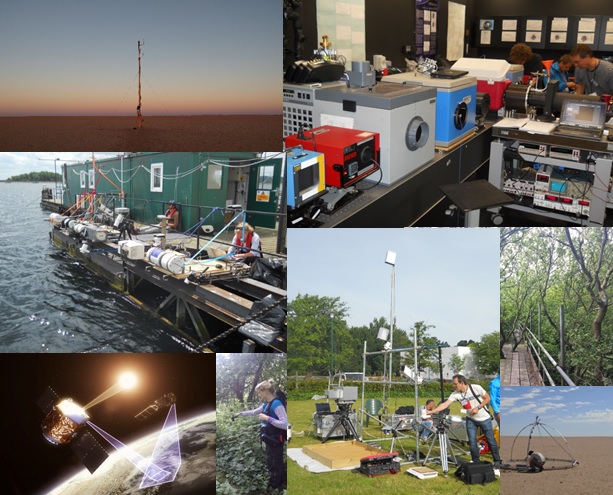Satellite observations of the Earth require robust validation to ensure that the data is consistent and reliable – UK-based NPL provides metrology leadership for domestic, European and global markets.
Dr Nigel Fox
Head of Earth Observation and Climate, NPL
Interests in radiometric measurements as well as Earth Observation and associated climate change parameters, with a particular emphasis on satellite observations.
Satellite observations of the Earth, such as those from the Copernicus Sentinels, require robust validation to ensure that the data is consistent and reliable. This is needed to enable long time base Fundamental Climate Data Records (FCDR) to be established and to evaluate climate sensitive processes. Both the satellite observations and those used for validation must be traceable to internationally agreed standards, i.e. the International System of Units (SI) to enhance the credibility of these climate datasets, supporting science, decision-making and climate services, giving society confidence in any conclusions drawn from the data.
Trustworthiness of information derived from Earth Observation data is becoming increasingly important for monitoring and mitigating the impact of climate change, not only for policymakers but also those involved in ‘risk assessment’ e.g. insurance, finance, energy etc. Decisions that impact upon society and economies are increasingly making use of climate earth observation data so it is important that continuous improvements in uncertainty and traceability are made throughout all stages of the satellite data production from pre-flight and post-launch calibration and validation and through all the intermediate data processing steps to get the data from satellite to a climate data record format. Metrology, the science of measurement, is the enabling science to facilitate confidence and ready assessment of ‘fitness for purpose’ of the data and derived knowledge.
Traceability and independent assessment of robustness of the satellite based climate data measurements
In the UK, NPL, the UK national metrology institute, through its centre for carbon measurement is championing international SI efforts to ensure traceability and independent assessment of robustness of the satellite based climate data measurements. This process is conducted from the satellites themselves, through improved pre-flight calibration, and their validation through in-situ (on Earth) measurements (see Figure 1). This has included measurements on deserts, oceans, snow fields, mountains and from the air via aircraft and balloons. NPL now leads a European Commission funded project to establish a “European Metrology Centre for Earth Observation and Climate”.

Figure 1: Montage of some of NPL’s research projects establishing traceability for satellite observations: from its laboratories in Teddington through to the desert in Namibia.
NPL is also carrying out research to establish improved SI traceability for many of the derived Essential Climate Variables (ECV) and associated bio/geo-physical parameters deemed essential for characterising the state of the global climate system and enable long-term climate monitoring. Examples of ECVs include land cover change, vegetation and forests, temperature of the land and ocean and its biology e.g. Ocean Colour ECV.
Supported by the European Space Agency on behalf of Committee on Earth Observation Satellites NPL has recently led a comparison of the worlds surface (Ocean, Land, Ice) temperature measurement capabilities to remove any potential biases and ensure global consistency. It is doing similar work for ocean colour through the ESA FRM4SOC project and has established a desert test-site in Namibia to validate top of the atmosphere surface reflectance measurements as a contribution to the CEOS RadCalNet network
Metrology leadership for domestic, European and global benefit
Within the UK, NPL is developing the techniques needed to validate satellite observations of Forests and Biomass through a woodland based test-site in Oxfordshire, as part of collaborative efforts with the University of Oxford and University College London. It is intended to develop the capabilities of the Wytham Woods site further so that it can become an international super site for satellite validation.
NPL leads the European metrology institutes in the development of techniques and standards through an EU funded project called Metrology for Environment and Climate 3. The project supports provision of climate Earth Observation data through a ‘one-stop-shop’: enabling European calibration scientists and engineers to deliver cost effective, fit for purpose SI traceable solutions to meet the needs of industry, funding organisations and the user community. This includes improving the methods of combining Earth Observation data from a variety of sources (space and in-situ) through the internationally recognised SI system of units.
NPL also has an ambition to establish robust metrology from space through a proposed novel satellite mission called TRUTHS. The mission when launched would form the basis of a climate observing system providing a factor 10 improvement in accuracy of measurements of the sun and earth and allow an upgrade in performance of the global Earth Observing system as a whole.
